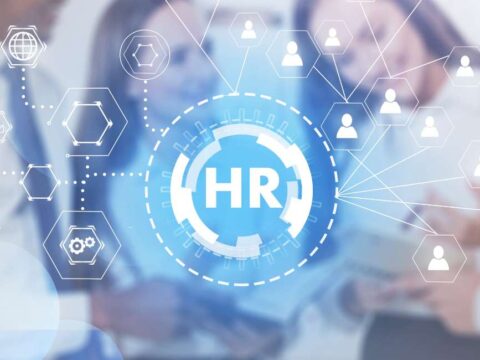Navigating the ever-changing realm of Human Resource Management requires staying at the forefront of industry trends. With the continuous evolution of technology, HR professionals are progressively embracing analytics to extract invaluable insights and steer strategic decision-making. For those contemplating an MBA in Human Resource Management, grasping the advantages of HR analytics is fundamental. Let’s delve into the primary benefits and examine the prospective landscape of HR analytics in the year 2023.
What is HR Analytics?
HR Analytics, or Human Resources Analytics, is the systematic analysis of HR-related data and metrics to enhance decision-making within an organization. It involves gathering, interpreting, and applying data to understand various aspects of the workforce, such as recruitment, performance, employee engagement, and retention. By leveraging statistical methods and technologies, HR Analytics aims to provide insights that help optimize HR processes, improve organizational effectiveness, and contribute to strategic business objectives. Essentially, it enables HR professionals to make data-driven decisions to better manage and nurture the workforce.
Benefits of HR Analytics
1. Data-Driven Decision Making
HR analytics empowers organizations to make informed decisions based on data rather than gut feelings. By analyzing employee data, HR professionals can identify trends, patterns, and areas for improvement, leading to more effective decision-making processes.
2. Talent Acquisition and Retention
In a competitive job market, attracting and retaining top talent is paramount. HR analytics helps in identifying the characteristics of high-performing employees, enabling recruiters to make data-driven decisions during the hiring process. Additionally, it aids in creating strategies to retain valuable employees by recognizing factors that contribute to job satisfaction.
3. Optimizing Employee Performance
Understanding employee performance is crucial for organizational success. HR analytics provides insights into individual and team performance, allowing HR managers to implement targeted interventions, training programs, or performance incentives to enhance overall productivity.
4. Workforce Planning and Succession Management
With HR analytics, organizations can proactively plan for future workforce needs. It assists in identifying skill gaps, succession planning, and ensuring a smooth transition of leadership positions. This strategic approach helps in preparing the workforce for upcoming challenges and opportunities.
5. Employee Engagement and Satisfaction
Employee engagement is directly linked to productivity and organizational success. HR analytics tools measure employee satisfaction through surveys, feedback, and performance data, allowing HR professionals to implement strategies that enhance engagement and overall workplace satisfaction.
6. Cost Optimization
By analyzing HR data, organizations can identify areas where costs can be optimized without compromising productivity. This includes evaluating the effectiveness of training programs, assessing overtime trends, and optimizing resource allocation for better cost management.
Importance of HR Analytics in an Organization
HR analytics is not just a trend; it’s a strategic imperative for modern organizations. Here’s why:
1. Strategic Alignment:
HR analytics aligns HR strategies with overall business objectives, ensuring that HR initiatives contribute directly to organizational success.
2. Risk Mitigation:
Identifying potential HR risks, such as turnover or skill shortages, allows organizations to proactively address challenges before they become significant issues.
3. Cultural Transformation:
Analytics provides insights into the organizational culture, enabling HR to foster a positive and inclusive work environment that aligns with company values.
Future Scope of HR Analytics in 2023
As we step into 2023, the future of HR analytics holds exciting possibilities:
1. Predictive Analytics:
The evolution of HR analytics includes a shift towards predictive analytics, where algorithms and machine learning models predict future trends and outcomes, enabling proactive decision-making.
2. AI Integration:
Artificial Intelligence (AI) will play a more prominent role in HR analytics, automating routine tasks, enhancing data accuracy, and providing deeper insights into employee behavior and performance.
3. Employee Experience Analytics:
The focus will extend beyond traditional HR metrics to encompass the overall employee experience. Analytics will measure factors like collaboration, well-being, and personal development, providing a holistic view of employee satisfaction.
Applying for an MBA in HR at ISMR Pune
If you’re passionate about shaping the future of HR through analytics, applying for an MBA in Human Resource Management at ISMR Pune is a strategic move. This specialized program equips you with the knowledge and skills to leverage HR analytics effectively, preparing you for leadership roles in the evolving HR landscape.
Contact Information:
Phone: 091453 74040
Email: admissions@ismrpune.edu.in
Campus Address:
Bypass Pune Saswad Road, Sr. No 907, Opp Hotel Vijay Executive, Gaidhara Kanifnath College Road, Wadki, Pune – 412 308, Maharashtra.
Take the next step in your career journey by considering the comprehensive MBA in HR program at ISMR Pune. For further inquiries and the application process, reach out to the admissions team at the provided contact details. Shape your future in HR leadership with the analytical prowess gained from this esteemed program.
conclusion
In conclusion, the benefits of HR analytics are vast, ranging from data-driven decision-making to strategic talent management. As we look towards the future, the integration of advanced technologies promises to elevate HR analytics to new heights. For those aspiring to make a significant impact in the field of Human Resource Management, embracing the power of HR analytics is not just an option—it’s a necessity. Apply for an MBA in HR today and embark on a journey to become a leader who harnesses the potential of HR analytics for organizational success.

